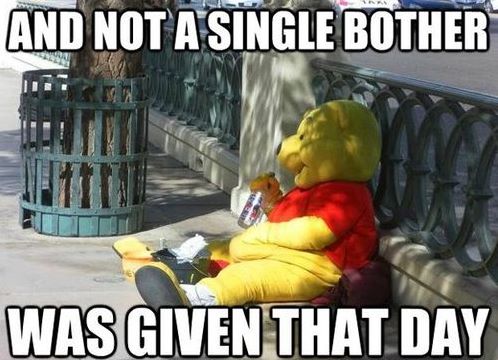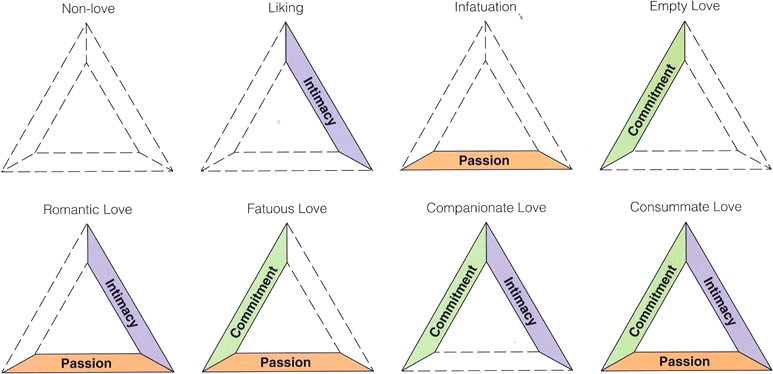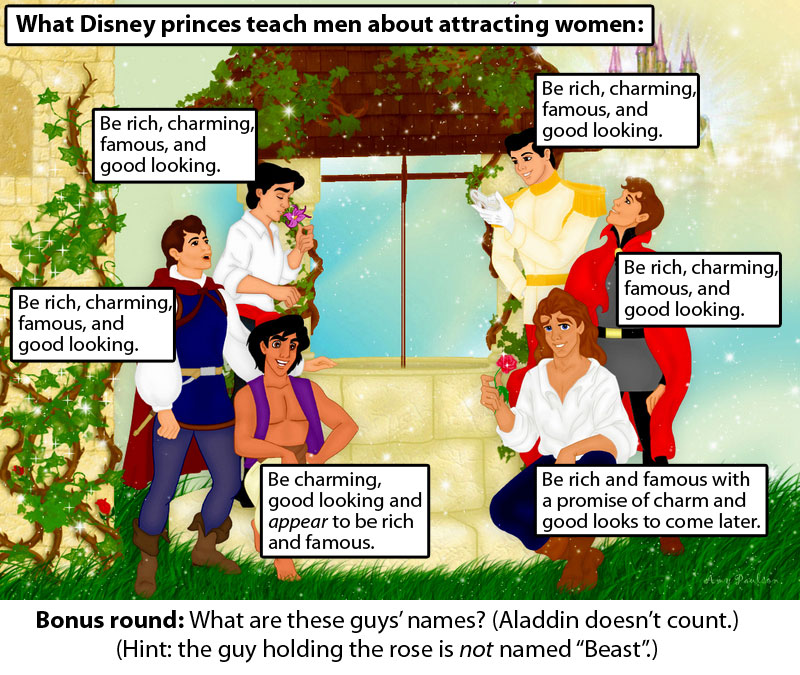For most of my adolescence and for my entire adult life, I have worked on me. I have been making quiet internal efforts to analyze who I am, what I want, and who I should spend my time with. Because of this I now have a super power.
Shapeshifting

Whenever something goes wrong in my life, the first thing I do is consider how I could have done things differently for a better outcome. This wasn’t always the case of course. Like any petulant kid, I’m sure I blamed others for my problems more often than not. But after the first couple rough relationships I went through as a teenager left me alone, blaming “her” (whichever one it was) was never enough to make it all make sense to me.
When I first started doing it that way, I would beat myself up about it a little bit more than I do now. Analyzing one’s own mistakes and shortcomings can have that effect, and I was my own harshest critic fairly often. Today, the process is a cold postmortem analysis that I can do in a unemotional state most of the time. Some of the ways I’ve shifted my thinking have facilitated this objective approach to my own mind, but it does have the side effect of turning off emotions that I need to remember to turn back on.
As I started looking deep within myself and finding things I didn’t like, it became difficult to make excuses for not working on them. I fix things. I make everything that’s messed up or broken clean and functional again. My brain would be the next major project. I was going to adapt to my surroundings and aim toward my goals. I was going to learn how to shapeshift.
Shape of: Easygoing in Hard Times
As a teenager, I was very passionate about religion. I explored my parents’ — and by inheritance, mine — beliefs early in my teen years and found many, many things about it that either offended me or didn’t make sense. This was before there was internet everywhere, so I probably felt like I was the only person who discovered this at the time. No one around me showed any doubt. I was just a kid after all. If some 12 year old came up to me and started trying to discuss philosophy counter to my own with me today, I’d probably have the same dismissive reaction.
After I had eschewed any consideration that Christianity was for me, I was a somewhat militant atheist. I probably shouldn’t blame myself for being defensive, considering the condescending words and judgmental looks given to me each week I was forced to go to church. But I disdain the smug atheists I see everywhere today and can’t help but see a part of my younger self in them. By the time my parents stopped forcing me to go to church years later, I had already started to drop my defenses. Around that time I had the internet, and I was able to research other religions and philosophies. My blog slowly changed from a childish diary into a more thoughtful soap box.
Discovering Buddhism — like any good stereotypical 18 year old — was the first “mainstream” religion that really resonated with me. It was peaceful, which has stuck with me to this day. It was calming and reassuring, which has allowed me to let go of so many stresses I once had. It was empathetic, which really wasn’t exclusive to Buddhism but it is definitely a requirement for any philosophy that I would support. It was humble, and didn’t make grandiose claims about itself or generalized judgments on certain demographics (like homosexuals or women).
I never officially adopted Buddhism. It was still a little too “fairy tale” for my style. But I took a lot from it. Later on, I found lots of different ways to say the same thing, but the one most well-known in the U.S. is probably:
The courage to change the things I can,
And the wisdom to know the difference.
I have learned over the years to let stuff go, which isn’t easy for me in many cases. I’m very sensitive to things being out of place, inefficient, unclean, etc. But I have never had a problem with prioritizing myself in times of stress and keeping a cool head in a crisis. The learned ability to point at something that bothers me and classify it as “out of my control” or “something I can affect” almost immediately has been indispensable to my mental health. I don’t often panic or worry at all. If I see that I can affect something negative and make it better in some way, I take action. Stuff gets done and fucks are not given where they aren’t needed.

This is a large part of my satisfaction in life today. I can be proud of the things I get done and I don’t dwell on the negative. And I lived happily ever after, right?
But…
Well, maybe not entirely. An unforseen side effect of this ability is that other people around me — even those who care deeply for me and spend a lot of time with me — have no clue if something is bothering me unless I tell them. Because I can banish those worried thoughts of “I hope my friends and family are OK in the hurricane” or “I hope this meeting at work on Monday goes well” in my everyday life, they are never really present on my face. It’s not that I’m repressing them or pretending they don’t exist. I just have a special compartment in my brain where I file away those things I can’t do anything about at the moment. I can pull that file whenever the time comes for me to deal with them.
On top of that, if I do talk about the tough things I go through or the negative emotions I’m feeling, I just switch it off at the end of the conversation. I go back to my normal generally-cheerful self. I didn’t suddenly “get over it” or forget about it or anything. I just don’t dwell on it. Sometimes, that gives a false impression that those issues are less consequential — or even worse, resolved. If part of the problems I have hinge on the person I express them to doing something, they may disregard it if they think this.
Of course, if you do happen to see me looking depressed or worried regularly, it means that something so major is wrong that I can’t help but dwell on it. I like to think this is rare, but I can’t really tell when something is showing through on my face or in my gestures.
Shape of: Communicator
A couple years ago, I had quite a few volatile arguments with my girlfriend. At the time, when I argued I would present my case, show evidence supporting my case, and then confidently argue my point. Like when I learned to write papers in high school, this was how I had always learned to argue effectively. Later in life it became clear that this model of organized debate can be destructive to an argument that relies on both parties’ feelings. I should have been focusing on the goals of resolving the issue and making both people feel better about it, rather than the goal of winning the argument.

I worked on my stubbornness. I worked on my tone. I tried to take longer pauses before I would respond. I had always listened to the other person before, but adding these things made it more evident to them that I was listening. I also started prefacing any negative statement about the other person with “I understand that _____, but…” or “It was good that you did ____, but…” to ease the feeling of persecution, and stop them from getting defensive.
These initiatives had great results. Fights were shorter. They got less heated and emotional. It seemed like I got through to her more often than before. We seemed to have reasonable resolutions.
But I wasn’t finished yet. More recently (and through therapy), I found out that I still put my girlfriend into a defensive position in the more passionate arguments we had simply by my wording. I definitely wasn’t the only one doing it, but I also wasn’t the one feeling attacked and going into turtle mode. This meant to me that I was the one who would really have to work on it if I wanted to get positive results from our communications.
This meant removing the word “you” from my arguments as much as possible. Instead of stating information — factual as it may be — directly, I needed to talk about how I feel when something happens. This doesn’t mean “It pisses me off when you don’t do your chores”, which is how many people use it. It means “When I get home after a rough day and walk into the kitchen to make myself a simple dinner, it’s very aggravating if I have to clean up after someone else, too.” It’s much easier to hear that phrase without feeling attacked.
Re-phrasing has actually had a much more profound effect than I expected. I belittled the concept early-on by calling it “speaking chick” and “gushing about my feelings”, but it’s worth a little wordsmithing to have a message actually finally get through to someone. It only took me about a month to adopt it entirely into my language. The results are still being examined, but it looks positive so far.
But…
It’s hard to come to terms with the concept that the person I’ve been living with and dating for 7 and a half years has just recently started understanding me. Logically, communication is a 50/50 thing, but I can’t help but feel like I could’ve been informed at some point that I wasn’t getting through. If she told me how confused she was instead of just nodding and staying quiet in those defensive moments, we could have avoided so much trouble.
Shape of: Empowered
I recognized at one point in my adolescence that I was a doormat for women. I was so mystified by the idea that a girl liked me that I would take whatever bullshit they gave me, and strive to be the perfect boyfriend. I was taken advantage of several times and I rarely left relationships in a timely or mature manner. I would either shut down my perfect boyfriend efforts and wait for them to dump me, or I would just wait far longer than I should to break it off myself.
As a kid, my parents — and step parents — never had relationships that I could relate to as a 13-16 year old. I was one of the first in my group of friends to have a girlfriend. The only place I saw a blueprint for that early stage relationship was on TV. You know, where the woman is always right and the man always screws up and has to make up for it in some romantic, cute way. Even when the woman was wrong and apologized, she would wait until the guy came to her and said sorry first and then add at the end “I’m sorry too”. I never realized how ridiculous and unfair it was until after multiple relationships, but I continued to have girlfriends afterward that still seemed to expect that behavior.
Society confuses the crap out of me. Some women want me to take them out and pamper them like royalty, while others are offended that I’m trying to buy them or impress them with money rather than respecting them as equals. In politics, women strive for equal pay for equal work — a cause I support — while simultaneously the media tells me that I’m supposed to pay for everything. On top of that, my own subjective reality is that I get paid less [for the same job] than many of my female colleagues! The mixed messages can really cause a man to wonder where his place is in all of it.

And so I’ve developed a strange form of empowerment in my interpersonal relationships. I take control of much more now than I did as a young man, but the selection of which aspects of the relationship I do this for seem arbitrary if not random. There are some relationship issues that I can be stand firm on, and others that I can’t even comment on, but those seem nearly as random, too. It’s just been a matter of trial and error. I stay away from certain issues that have caused previous girlfriends and friends to react negatively, even if I don’t really understand why the reaction occurred. I let the female[s] decide and take control of certain matters even if I’m not aware of why I would be less capable of doing it myself. This doesn’t seem like an efficient or effective model in the long term, but I don’t see any other option. In the meantime, I’ve found that in most cases whatever the TV says is probably the opposite of what’s best.
But..
I thought that — like all of the other big things I had changed in the past — I had finally at least empowered myself to the point of not being stepped on. But for this year (2012), I’ve started to doubt that. As things continue to deteriorate in my relationship, I look back every so often to see all the times I enabled it. All the times I compensated for efforts not made by my other half. All the times I took responsibility because someone else wouldn’t. As much as it comes naturally to me to take care of the people around me, it’s hard to do it all the time. Keeping all of these things together with immeasurable amounts of duct tape and band-aids was bound to fall apart sooner or later. Quick fixes just won’t do it anymore.
The small bit of empowerment I’ve built over the years has turned out to be similar to parental empowerment. While I have control over my household, make my own decisions and do what I please, I am still chained with the responsibility of the caretaker. I still have to be the one who pays the bills, makes sure everyone gets home safe after a night out, and reminds others of their personal responsibilities. It’s becoming exhausting to do this in a relationship where the two people are supposed to be equals. Even a man with super powers has his breaking point.
Trials
All of these powers have taken large amounts of time and personal effort to develop. Even more importantly, they all rose out of adversity. The path behind me is littered with the corpses of dozens of relationships. I may still be friends with many of the people, but those relationships have ceased to exist in their original form. I screwed up at least half of them, but learning from them has turned me into who I am today.
Now I face tougher adversity than I’ve felt in a long time. Few people will likely see it on my face in daily life. But from this adversity, my current goals are:
- Patience
- Faith (in other people)
- Conviction (in my actions, not just my words)
The coming weeks and months will probably be tougher than the rest of 2012, but the end of them will hopefully bring me as close to certainty as I can get. In one direction or another.
